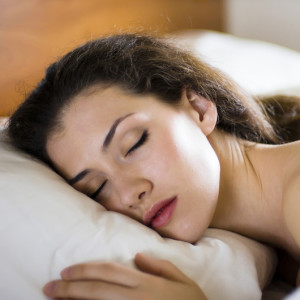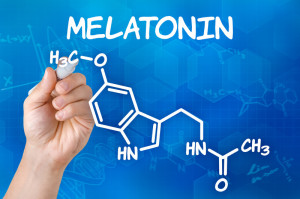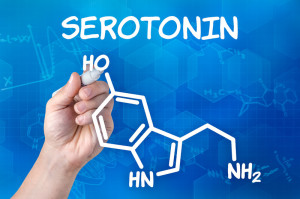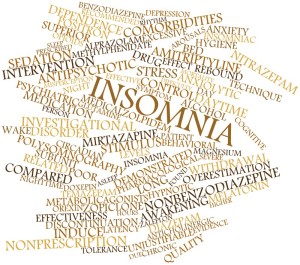Sleep Better, Look Better, Feel Better
 What You Need To Know About Sleep
What You Need To Know About Sleep
There’s no denying that a good night’s sleep can make a world of difference in performing daily activities. Almost everyone experiences sleep disruption at one time or another and understands how it can make ordinary tasks seem nearly impossible. This effect is not only a perception but also a signal as to how profoundly sleep affects the general state of health. Incredibly, even short term sleep deprivation is associated with slowed reaction times on par with alcohol use, making tasks like driving substantially more dangerous. More long term effects of sleep are associated with aging, as the body depends on this period of rest to make its crucial repairs. As it turns out, the old adage of ‘getting one’s beauty sleep’ is really quite true after all.
For some, sleep disturbance is on-going and is therefore best described as a sleep disorder. Many chronically sleep deprived individuals are well aware of their difficulty but are still left wondering how to sleep better. Notably, however, not all sleep disturbances may be immediately evident. While some sleepers can drift off to dreamland with little to no effort on most nights, this cannot guard against occasional disturbances or an underlying sleep disorder. Although it may appear that one has experienced good sleep, awaking in the morning feeling refreshed is the surest sign that a truly restful night has passed.
Whether having already experienced the life of the sleep deprived or wishing merely to guard against the sleeplessness that becomes more prominent with age, it is important to everyone to understand how better sleep improves well being that is apparent both inside and out.
The Science of Sleep
 There is much that is yet to be understood about the full interaction of mechanisms at work while the body is asleep. There are, however, a few essential hormones that act as neurotransmitters (chemical messengers in the brain) that are known to play leading roles. Melatonin and serotonin have made their way into mainstream lingo but not always with an accompanying users-guide. These two hormones are active in the brain and have a profound effect on mood and wakefulness. Serotonin is sometimes playfully referred to as the “feel-good hormone.” Elevating serotonin levels in the brain has been noted to help reverse the negative mood associated with depression and as such, forms the foundation of many therapies including serotonin supplements. Some natural appetite suppressants such as Saffron Extract work by naturally increasing serotonin levels, so mood control and improved sleep are often a by-product of weight loss plans that implement these supplements.
There is much that is yet to be understood about the full interaction of mechanisms at work while the body is asleep. There are, however, a few essential hormones that act as neurotransmitters (chemical messengers in the brain) that are known to play leading roles. Melatonin and serotonin have made their way into mainstream lingo but not always with an accompanying users-guide. These two hormones are active in the brain and have a profound effect on mood and wakefulness. Serotonin is sometimes playfully referred to as the “feel-good hormone.” Elevating serotonin levels in the brain has been noted to help reverse the negative mood associated with depression and as such, forms the foundation of many therapies including serotonin supplements. Some natural appetite suppressants such as Saffron Extract work by naturally increasing serotonin levels, so mood control and improved sleep are often a by-product of weight loss plans that implement these supplements.
 Given serotonin’s association with feel good, pick-me-up, energized states, it may be a reasonable surprise to find that it is administered as a natural sleep aid. The key lies in the fact that neither oral serotonin supplements nor the abundant serotonin produced in the digestive tract can cross the blood-brain barrier. Instead, serotonin exerts its sleep enhancing effect through its role as the precursor molecule to melatonin, the body’s natural “mellow-down hormone.” Sufficient melatonin ensures that the mind is calm and the body relaxed enough to help induce sleep. The conversion of serotonin to melatonin takes place in the pineal gland, a small extension of the brain that lies outside of the blood-brain barrier. As a result, it is increased melatonin that then enters the brain to enhance sleepiness when a serotonin supplement is taken.
Given serotonin’s association with feel good, pick-me-up, energized states, it may be a reasonable surprise to find that it is administered as a natural sleep aid. The key lies in the fact that neither oral serotonin supplements nor the abundant serotonin produced in the digestive tract can cross the blood-brain barrier. Instead, serotonin exerts its sleep enhancing effect through its role as the precursor molecule to melatonin, the body’s natural “mellow-down hormone.” Sufficient melatonin ensures that the mind is calm and the body relaxed enough to help induce sleep. The conversion of serotonin to melatonin takes place in the pineal gland, a small extension of the brain that lies outside of the blood-brain barrier. As a result, it is increased melatonin that then enters the brain to enhance sleepiness when a serotonin supplement is taken.
The Causes of Insomnia
 In light of the complex interplay of physical and emotional elements that interact during sleep, it’s quite logical that a multitude of factors can act to interfere in getting a good night’s sleep. In some cases, a serotonin deficiency may be to blame. This can arise either as a primary disorder or secondary to some other ailment but is most often idiopathic (lacking a discernible cause).
In light of the complex interplay of physical and emotional elements that interact during sleep, it’s quite logical that a multitude of factors can act to interfere in getting a good night’s sleep. In some cases, a serotonin deficiency may be to blame. This can arise either as a primary disorder or secondary to some other ailment but is most often idiopathic (lacking a discernible cause).
Disturbance of psychological well being is another major cause of sleep disorders and has been associated with serotonin deficiency. Short term duress that leads to even mild anxiety is one of the most often cited causes of sleep deprivation. Similarly, more long-term depressive disorders are marked by disturbed sleep. The link between serotonin and depression makes the onset of sleep disturbance a logical aspect of the diagnostic criteria for this mood disorder.
The Benefits of Restful Sleep
Sleeping well not only feels good but also does a world of good. Adequate sleep is a noted appetite regulator, making it an essential diet aid. Another way in which body weight is affected by sleep is through cortisol. This essential hormone is the primary stress regulator of the body but unfortunately promotes fat deposition. The body breaks down cortisol during sleep, hormonally balancing the stress of the day with the peace of sleep. Individuals suffering from sleep disruptions have notably elevated cortisol levels and its subsequent deleterious effects that include excess weight, bone calcium depletion and hyperglycemia.
The rejuvenating effects of sleep are apparent not only in body weight regulation but also in the slowing of the aging process. Sleep allows the body to utilize antioxidants to help heal from the aging and carcinogenic effects of factors known to cause oxidative stress. This state arises from a variety of DNA and collagen damaging insults such as UV rays and free radicals, the main factors most significant in creating the signs of aging. The sleep-inducing hormone melatonin has been described as the body’s most potent antioxidant but exerts its healing effects only during sleep.
Natural Sleep Aids
With the wealth of health benefits awaiting the well-rested, there is simply no reason not to ensure a good night’s sleep. Adopting proper sleep hygiene is an appropriate first step for anyone searching for just how to sleep better. This includes small but significant behavior changes such as clearing the bedroom of distractions, reserving the bedroom solely for sleeping and climbing into bed only once sleepiness has begun to set in.
 Additionally important for restful sleep is the use of herbal and other natural sleep aids. Many options exist and may offer a host of other benefits in addition to aiding with problems of sleep disturbance or serotonin deficiency. For example, certain herbal sleep aids and serotonin supplements have also been associated with additionally enhancing weight loss. These are a prime choice for anyone wishing to make improvements in both weight management and sleep quality.
Additionally important for restful sleep is the use of herbal and other natural sleep aids. Many options exist and may offer a host of other benefits in addition to aiding with problems of sleep disturbance or serotonin deficiency. For example, certain herbal sleep aids and serotonin supplements have also been associated with additionally enhancing weight loss. These are a prime choice for anyone wishing to make improvements in both weight management and sleep quality.
Some herbal sleep aids are available as bedtime teas. This combines the physically and emotionally calming effects of a warm drink before sleeping with the natural sleep aids’ beneficially chemical profile.
Whatever the strategy and whatever the goal, there’s no reason to wait for a better night’s sleep. So stop wondering how to sleep better by giving a natural sleep aid a try. Start experiencing life without sleep disorders: the difference is like night and day.
If you’ve enjoyed this article, please link back to us at:
[https://goldsourcelabs.com/?p=529]
Sources:
http://hrcak.srce.hr/index.php?show=clanak&id_clanak_jezik=110013
https://www.meschinohealth.com/ArticleDirectory/5_Hydroxytryptophan_5_HTP
http://www.lipidworld.com/content/10/1/6
http://www.naturalhealthadvisory.com/daily/depression-and-anxiety/serotonin-supplements-to-treat-depression-anxiety-insomnia-yourself/
http://www.health.com/health/gallery/0,,20306715,00.html

Excellent article! Very informative and confirmed what I have been doing to ensure a better nights sleep. Thank you, Mark, for taking time to publish this for us!
Thanks Candy!
So glad to hear that you are on the right track. Quality sleep is important to every facet of health. Another thing to be conscious of is ensuring it is completely dark when you sleep.
A recent study of mice given the same amount of food and exercise has shown that mice exposed to dim light at night gained 50% more weight over an 8-week period than those that spent their nights in total darkness.
We’re not mice, but it’s something to consider.
Have a Happy and Healthy New Year!
Mark